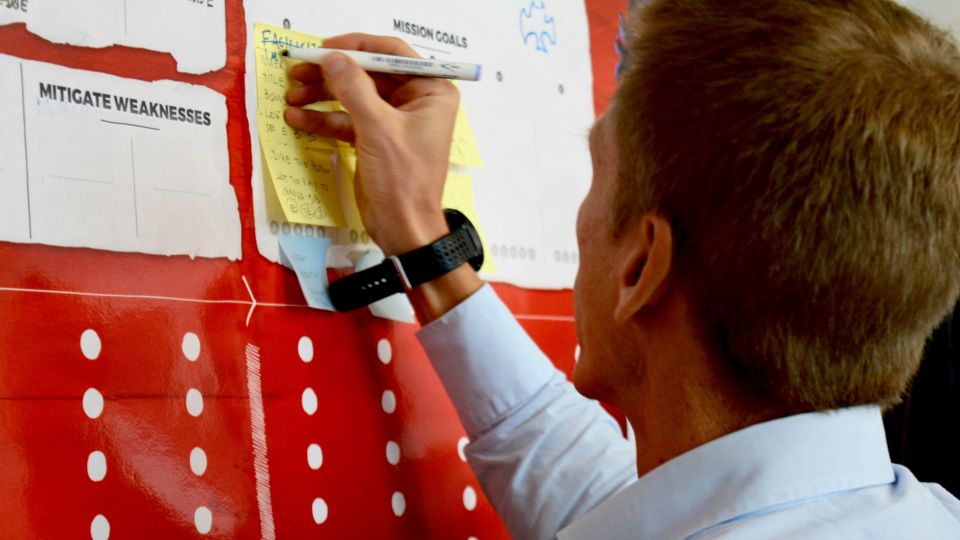

Networking for Job Seekers: Building Connections to Unlock Career Opportunities
When it comes to job hunting, submitting a strong CV and cover letter is only part of the equation. Networking, both online and offline, continues to be one of the most effective job search strategies. In fact, research consistently shows that a large proportion of roles are filled through professional networking and personal referrals, not formal applications. This makes building and maintaining your professional network essential.
Despite its proven impact, many job seekers find networking challenging. Whether it’s shyness, uncertainty about where to start, or a lack of clear direction, these barriers can prevent people from accessing hidden opportunities. Some worry about feeling transactional, others fear rejection, and many simply underestimate their existing network.
That’s where Macildowie comes in. We support candidates across all stages of their career journey, helping them build authentic, valuable networks. From personalised coaching to access to exclusive industry connections, our services are designed to give job seekers the tools and confidence to connect strategically and effectively.
Understanding the Importance of Networking
Why Networking Matters in Job Searching
Many job openings are never advertised; they’re filled through internal referrals, word of mouth, and trusted connections. This "hidden job market" is vast and often only accessible through strategic networking. If you're not plugged into relevant networks, you might never hear about roles that are perfect for you. That’s why building a proactive, targeted networking strategy is essential.
Recruiters and hiring managers are more likely to consider candidates recommended by someone they trust. A referral not only gives your application a boost, but it can also fast-track your CV past the initial screening stages. Employers value the perceived lower risk of referred candidates, knowing they’ve already been vetted informally. This makes networking a high-impact method for increasing your visibility and credibility in your target field.
Networking also allows you to gather insights that rarely appear in job adverts. Through conversations with professionals in your desired industry, you can learn about the nuances of company culture, the unwritten expectations of certain roles, and even upcoming business changes that may lead to hiring. These inside details help you tailor applications more effectively and enter interviews better prepared.
Types of Networking: Online vs. Offline
Online Networking is now an essential part of any job search. Platforms like LinkedIn are more than digital CVs, they are personal branding tools. By regularly posting insights, commenting on relevant content, and sharing your own professional journey, you can demonstrate thought leadership and stay top-of-mind for opportunities. Online networking also extends to participating in industry-specific forums, digital communities, Slack groups, and alumni platforms, all of which offer low-barrier ways to build meaningful connections regardless of location.
Offline Networking includes attending career fairs, seminars, industry panels, charity events, training sessions, and informal coffee catch-ups. These in-person moments often spark deeper connections and give people a stronger impression of who you are beyond your online persona. A simple conversation at a conference or even a casual meet-up can lead to unexpected referrals, partnerships, or valuable career guidance.
The most effective strategy? Combining both. Use your online activity to establish credibility and stay visible, then reinforce those relationships with face-to-face interactions when possible. Together, they form a comprehensive network-building approach that amplifies your reach and deepens professional trust.
Strategies for Effective Networking
1. Leveraging Online Platforms
A well-optimised LinkedIn profile can be your ticket to new job leads and meaningful professional connections.
- Optimise Your LinkedIn Profile: Start with a clear, professional photo and a headline that reflects not just your job title, but the value you bring. Use the 'About' section to craft a narrative that blends your experience with your career goals. Highlight measurable achievements, add multimedia where relevant, and ensure your skills are endorsed.
- Engage With Content: Visibility on LinkedIn is driven by activity. Like, comment, and share industry-relevant content. Better yet, create your own posts sharing what you’ve learned from recent projects or events. The goal is to stay top-of-mind and be seen as someone active and informed in your space.
- Join Groups: LinkedIn and other platforms host industry-specific groups that are goldmines for insights and opportunities. Participate in discussions, share articles, and don’t be afraid to ask questions. Engagement in groups shows initiative and helps attract the right connections.
2. Attending Networking Events
Attending events allows you to meet decision-makers and peers face to face, which helps establish trust.
- Find the Right Events: Look for events hosted by trade associations, universities, industry thought leaders, or Macildowie. Use platforms like Eventbrite or Meetup to discover local and virtual networking opportunities.
- Prepare an Elevator Pitch: Develop a 30–60 second pitch that outlines who you are, your background, and what you're seeking. Make it conversational, not robotic, and adapt it based on the context of the event.
- Follow Up: Within 24–48 hours, follow up with people you’ve met. Mention something specific from your conversation to make your message personal. Connecting on LinkedIn and sending a short message helps keep the door open for future interaction.
3. Conducting Informational Interviews
Informational interviews are one of the most strategic ways to deepen industry knowledge while expanding your network.
- Why They Matter: These low-pressure conversations provide insider perspectives on career paths, company cultures, and industry trends. They help you validate whether a role is truly the right fit, and can often lead to unadvertised job leads.
- Reaching Out: When messaging someone, be clear and concise. Mention how you found them, why you’re interested in their work, and ask if they’d be willing to chat for 20 minutes. Most professionals are flattered to be asked.
- Ask the Right Questions: Go beyond “what do you do?” Ask about the skills they rely on most, how they got started, the biggest challenges in their role, and what they wish they’d known early in their career. Always thank them and ask if there’s anyone else they’d recommend you speak with.
4. Utilising Personal Networks
Many job seekers overlook the power of their existing network.
- Let People Know You’re Looking: Update your status or reach out privately to let others know you’re exploring new opportunities. Be clear about the types of roles or companies you’re targeting.
- Ask for Referrals: If you see a connection working at a company you’re targeting, ask them for insight into the hiring process. If appropriate, request a referral, and offer to make it as easy as possible by sharing your CV and a short summary they can forward.
5. Building and Maintaining Relationships
The best networks are built on authenticity and consistency.
- Stay in Touch: Schedule regular check-ins with key contacts. Share updates on your progress or pass along articles they might find interesting. This keeps the relationship warm even when you're not actively job hunting.
- Offer Value: Think about how you can help others. Whether it’s connecting two people, offering to review a CV, or sharing a resource, giving before asking helps build trust and goodwill.
- Track Your Contacts: Use simple tools like Google Sheets, Airtable, or a CRM to track names, dates of interactions, key notes, and planned follow-ups. This helps you manage your network with care and professionalism.
Macildowie’s Role in Enhancing Networking Efforts
At Macildowie, we go beyond job matching, we actively empower individuals to build the kind of network that leads to long-term career success.
- Workshops and Events: We host targeted networking events, employer insight panels, and interactive workshops that create real connections. These are designed not just to educate, but to facilitate high-value interactions.
- Personalised Coaching: Our one-on-one coaching supports you in building a tailored networking plan. We help refine your pitch, optimise your LinkedIn presence, and practise outreach messaging so you can connect with confidence.
- Access to Exclusive Networks: Through our longstanding industry relationships, we introduce job seekers to hiring managers, department leads, and decision-makers that might not be reachable through traditional means. Our reputation gives your introduction credibility.
Whether you're a recent graduate or an experienced executive, Macildowie’s network becomes your network, and that’s a powerful advantage.
Conclusion
Networking isn’t just about finding a job, it’s about cultivating meaningful, lasting relationships that support you both personally and professionally. It helps you stay informed, unlock hidden opportunities, and develop a reputation as someone engaged, curious, and valuable.
If you’re just starting out, begin with what you have. Reach out to existing connections, build your online presence, and take small but consistent steps toward expanding your professional circle. The effort compounds over time. You’ll soon find that a simple message, a comment on a post, or a quick coffee catch-up can open unexpected doors. Relationships built today often turn into opportunities tomorrow.
At Macildowie, we believe your network is one of your most valuable career assets, and we’re here to help you grow and leverage it. Whether you're navigating a career pivot, preparing for a promotion, or entering a new industry, we equip you with the insight, confidence, and connections to take the next step.
Real conversations lead to real progress. And that’s what we help you create.
Frequently Asked Questions
Start with informational interviews, alumni connections, and LinkedIn groups. Be honest about being new - curiosity and eagerness often attract support.
Use a keyword-optimised headline, write a compelling ‘About’ section, include quantifiable achievements, and keep your profile active by engaging with content.
Be concise. Say who you are, why you admire their work, and politely request a short conversation. Show appreciation and respect for their time.
Follow up within 48 hours after initial contact. Then check in every few months with updates, helpful resources, or simple touchpoints.
Yes. We provide access to exclusive industry connections, personalised introductions, and support that puts you in the right conversations with the right people.









